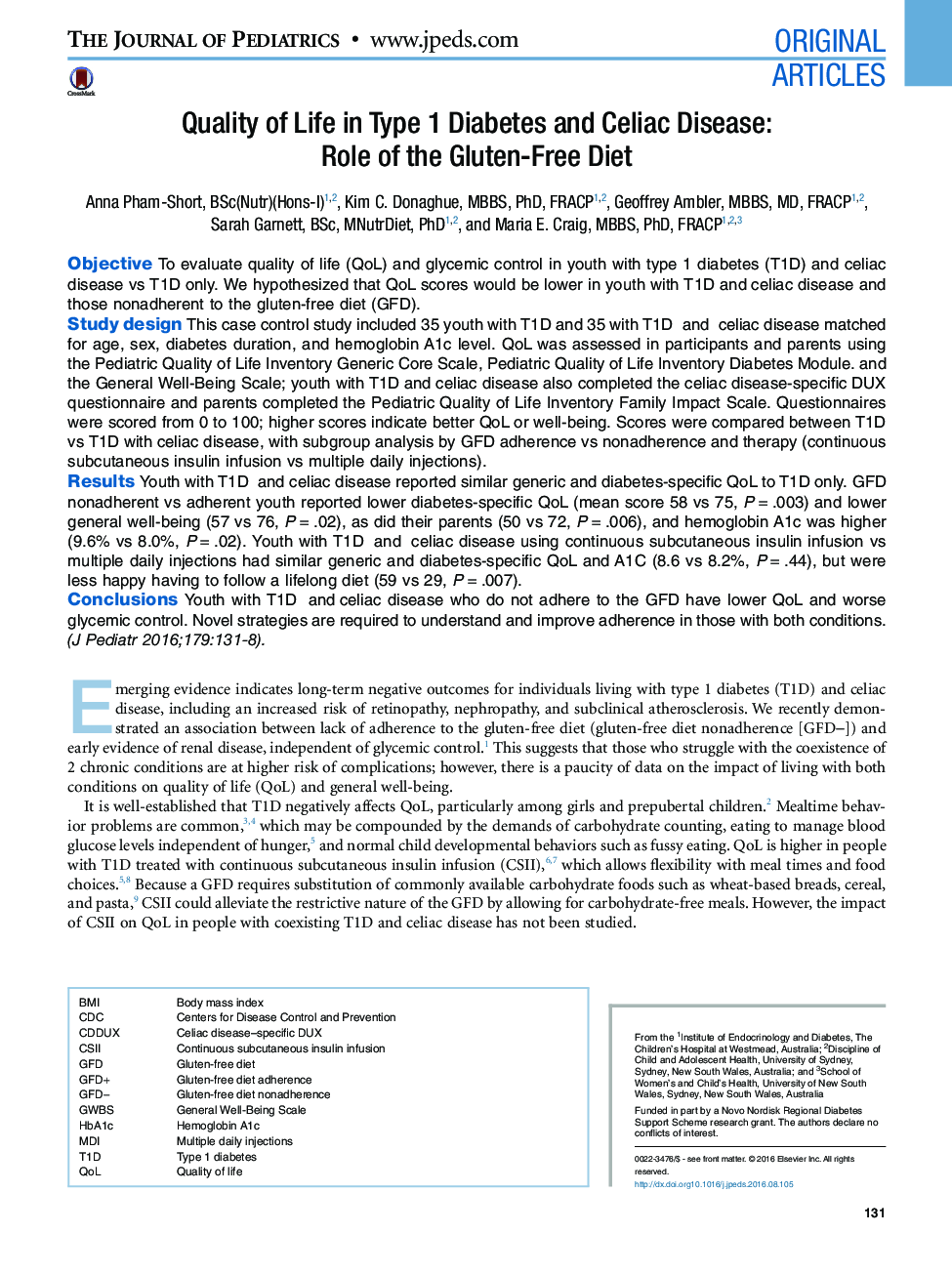| کد مقاله | کد نشریه | سال انتشار | مقاله انگلیسی | نسخه تمام متن |
|---|---|---|---|---|
| 5719524 | 1607421 | 2016 | 9 صفحه PDF | دانلود رایگان |
ObjectiveTo evaluate quality of life (QoL) and glycemic control in youth with type 1 diabetes (T1D) and celiac disease vs T1D only. We hypothesized that QoL scores would be lower in youth with T1D andâceliac disease and those nonadherent to the gluten-free diet (GFD).Study designThis case control study included 35 youth with T1D and 35 with T1Dâ andâ celiac disease matched for age, sex, diabetes duration, and hemoglobin A1c level. QoL was assessed in participants and parents using the Pediatric Quality of Life Inventory Generic Core Scale, Pediatric Quality of Life Inventory Diabetes Module. and the General Well-Being Scale; youth with T1Dâandâceliac disease also completed the celiac disease-specific DUX questionnaire and parents completed the Pediatric Quality of Life Inventory Family Impact Scale. Questionnaires were scored from 0 to 100; higher scores indicate better QoL or well-being. Scores were compared between T1D vs T1Dâwithâceliac disease, with subgroup analysis by GFD adherence vs nonadherence and therapy (continuous subcutaneous insulin infusion vs multiple daily injections).ResultsYouth with T1Dâ andâceliac disease reported similar generic and diabetes-specific QoL to T1D only. GFD nonadherent vs adherent youth reported lower diabetes-specific QoL (mean score 58 vs 75, Pâ=â.003) and lower general well-being (57 vs 76, Pâ=â.02), as did their parents (50 vs 72, Pâ=â.006), and hemoglobin A1c was higher (9.6% vs 8.0%, Pâ=â.02). Youth with T1Dâ and âceliac disease using continuous subcutaneous insulin infusion vs multiple daily injections had similar generic and diabetes-specific QoL and A1C (8.6 vs 8.2%, Pâ=â.44), but were less happy having to follow a lifelong diet (59 vs 29, Pâ=â.007).ConclusionsYouth with T1Dâ andâceliac disease who do not adhere to the GFD have lower QoL and worse glycemic control. Novel strategies are required to understand and improve adherence in those with both conditions.
Journal: The Journal of Pediatrics - Volume 179, December 2016, Pages 131-138.e1
